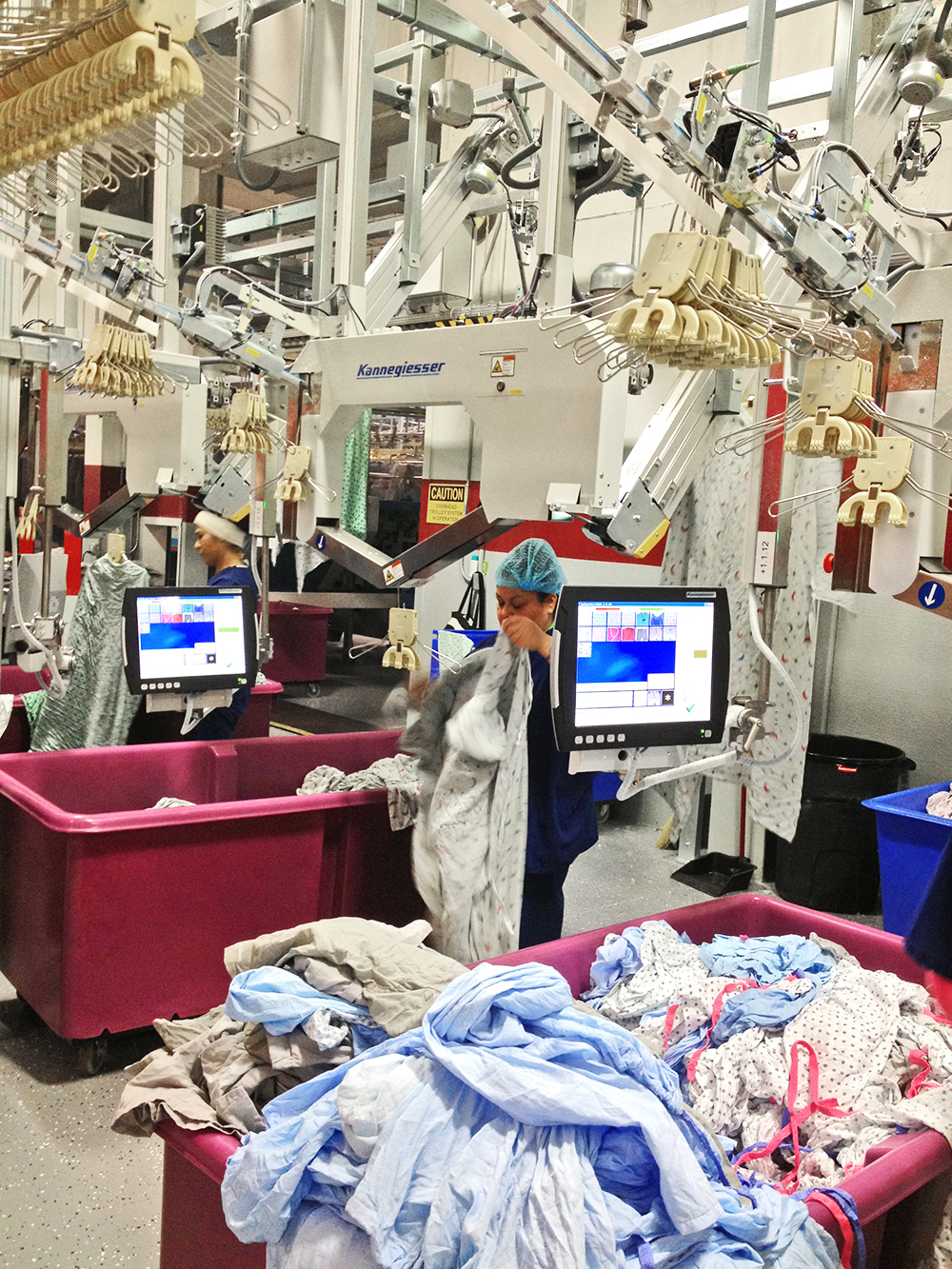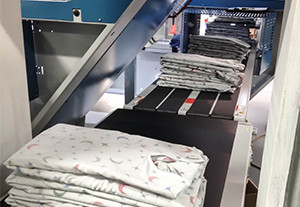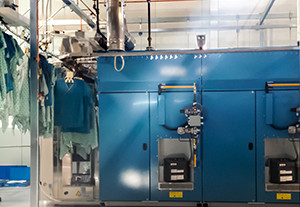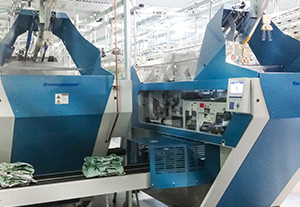
SAGINAW, Mich. — In its 46-year history, Michigan Premier Laundry (MPL) has processed approximately 400 million pounds of healthcare linen. MPL is the only centrally located, large-scale healthcare laundry on Michigan’s Lower Peninsula.
The laundry serves15 hospitals and 75 clinical off-site facilities by processing scrubs, towels, sheets, pillowcases and patient gowns. Currently MPL handles approximately 16 million pounds of healthcare linen yearly and a recent 10,000 square-foot addition will expand their processing ability to 22 million pounds.
When processing that much linen, it could be hard to maintain high quality. But not for MPL. The Healthcare Laundry Accreditation Council accredited cooperative facility takes pride in providing superior services at a competitive price. And they are always striving to improve. So when the task of increasing plant efficiencies was at hand, management decided to seek out a new healthcare garment processing system.
“We were mainly looking to increase the quality of our surgical scrubs,” explains Chad Searles, MPL director of operations. To facilitate that goal MPL put out a bid request for equipment vendors and Kannegiesser USA was awarded the project.
In early 2013, the Kannegiesser project team developed an installation plan to fit within MPL’s allocated floor space and start up schedule. The goal was to begin with three (3) garment hanging stations, RFID “chipped” automatic system hangers, a true wet to dry garment tunnel finisher, custom sortation rails, and two (2) automatic folding robots. This first phase of a multi-phase plan was completed in 2013 and the laundry began seeing increased plant efficiencies and reduced operating costs immediately.
Later in 2014, the automated Kannegiesser customizable garment system was expanded by adding more storage rails and a fourth garment hanging station to accommodate an increase in needed capacity. MPL is now able to wash mixed items as the garment system automatically sorts and folds by size and type, eliminating the need for a post sort in the pack-out area.
The Kannegiesser XMT garment finishing steam tunnel allows goods to go directly from the washroom extractor unit to the garment system for final finishing. This allows garments to bypass the dryers, reducing overall utility consumption in the plant. It has also shifted much of the staff from hand folding scrubs to other needed production areas of the laundry.
MPL personnel currently process an average of 1,500 – 1,600 garments per hour through the system utilizing four (4) hanging station operators and one (1) operator placing the automatically folded items into shipment carts on the back end.
“The new production flow has evened out the dryer bottlenecks that occurred previously in the plant,” Searles said. “Now the staff is able to focus on increased production and higher quality throughput.”
It’s a busy laundry. Five days-a-week, the MPL laundry hums eight-10 hours-a-day with one-shift of 32 full-time and 20 part-time employees. A 150-pound eight-module Pellerin Milnor tunnel and a Lavatec 16-module 150-pound tunnel handle washes. Drying will soon be handled by 12 new Kannegiesser Power Dry 120’s. And in addition to the Kannegiesser garment finishing equipment, MPL has two Chicago Edge Maxx feeders, two Chicago Skyline Folders, two Chicago Blanket Blasters and three Air Chicago small piece folders. The laundry’s water reclamation is handled by Thermal Engineering of Arizona and in addition to their two Muira 150 HP boilers, they will soon be installing a new Muira 300 HP boiler.
“We’ve received a great amount of positive feedback on the improved quality of all our garments,” Searles said. “The Kannegiesser system has opened up dryer capacity for other laundry items which adds to the overall increased production and financial savings for our laundry. We could not have made a better choice. Kannegiesser was with us every step of the way and they made sure we were comfortable with every aspect of the equipment before leaving us on our own.”
















